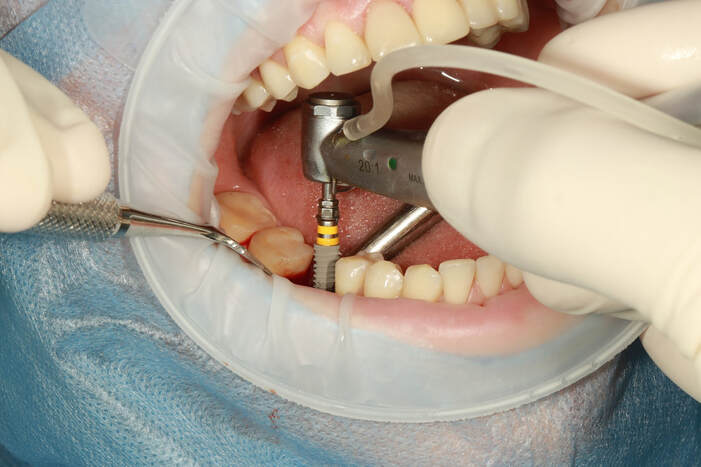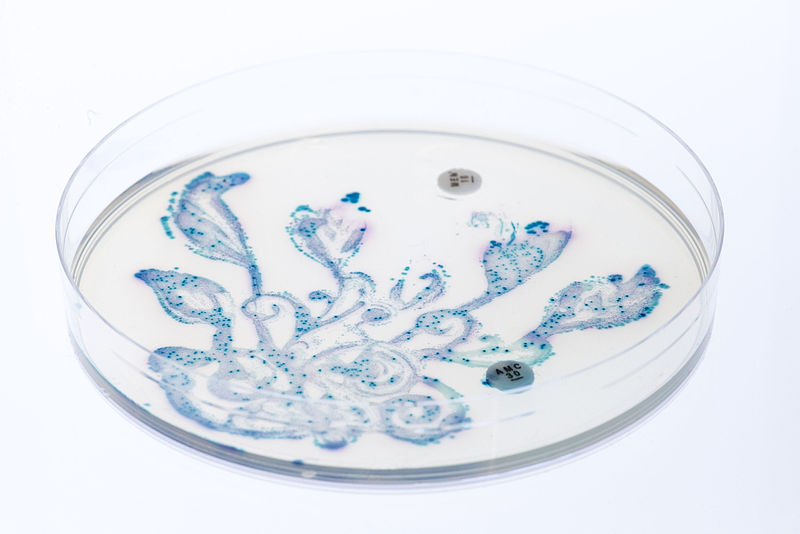Zapping Microbes: An Electrochemical Treatment for Reducing Infections in Titanium Implants
A silver metal with a low density and high strength, titanium can be found in airplanes, jewelry, and now, in the 21st century, it is also commonly found implanted into the human body. Researchers have discovered that through the use of titanium, they are able to create highly effective metal implants for dental and medical purposes. Metal implants are used to help ease orthopedic, oral, and neural sicknesses, monitor body functions, and/or replace missing body parts. These implants have been successful and contributed greatly to improving the lives of the people who have them. However, there are some complications that arise from inserting an unfamiliar material like titanium into the human body.
Metal implants, especially titanium implants, easily become infected by foreign microbes and invaders that cause illness and other serious discomforts and diseases. According to a study done in 2012, the rates of peri-implantitis--the swelling of the gums and the bones around a titanium dental implant--were reported to be as high 10%. The most common microbe that causes this inflammation is a fungus known as Candida albicans. Candida albicans is a resilient microbe that is able to live in a wide range of harsh conditions; the only way to treat an infection is by using an antibiotic known as fluconazole. Unfortunately, fluconazole is not effective in all cases, and the infection usually remains even after taking the medicine because it is super resistant to the drug. Searching for a solution, a joint group of researchers at the University of Pittsburgh and the University of Pennsylvania banded together to develop an electrifying and functional solution.
Metal implants, especially titanium implants, easily become infected by foreign microbes and invaders that cause illness and other serious discomforts and diseases. According to a study done in 2012, the rates of peri-implantitis--the swelling of the gums and the bones around a titanium dental implant--were reported to be as high 10%. The most common microbe that causes this inflammation is a fungus known as Candida albicans. Candida albicans is a resilient microbe that is able to live in a wide range of harsh conditions; the only way to treat an infection is by using an antibiotic known as fluconazole. Unfortunately, fluconazole is not effective in all cases, and the infection usually remains even after taking the medicine because it is super resistant to the drug. Searching for a solution, a joint group of researchers at the University of Pittsburgh and the University of Pennsylvania banded together to develop an electrifying and functional solution.
Image Source: volodymyr007
These researchers discovered that a technique using electricity to aid in the killing of bacteria and fungi worked extremely well. Electrochemical treatments--sending a small electric pulse through the skin into the metal implant already placed in the body--allowed fluconazole to better fight off and defeat Candida albicans. In other words, these small electric pulses had anti-fungal properties that aided in not only destroying the microbes but also making sure that they stayed dead. The study found that after combining the antibiotic treatment with electric pulses, the fungus cells growing on the titanium implants experienced higher mortality rates. The electric treatment made perforations or tiny, frequent, and consistent holes in the cell membrane; these perforations allowed the fluconazole to pass through the membrane like sand passes through a sieve on the beach and destroy the cells from the inside. The rate of cell death rose to almost 99% with the joint treatment, indicating that the combined treatment is a clear success.
In addition to its efficacy, there are other benefits to the treatment. Electrical pulses barely harm the integrity of the actual implant itself or the patient’s body, meaning that it is quite safe and will rarely compromise the sturdiness of the implant. The discovery of improving the effectiveness of antibiotics through electrochemical treatments is acutely important today as the frequency of drug resistance continues to rapidly increase.
In addition to its efficacy, there are other benefits to the treatment. Electrical pulses barely harm the integrity of the actual implant itself or the patient’s body, meaning that it is quite safe and will rarely compromise the sturdiness of the implant. The discovery of improving the effectiveness of antibiotics through electrochemical treatments is acutely important today as the frequency of drug resistance continues to rapidly increase.
Featured Image Source: n8kings
RELATED ARTICLES
|
Vertical Divider
|
Vertical Divider
|
Vertical Divider
|






